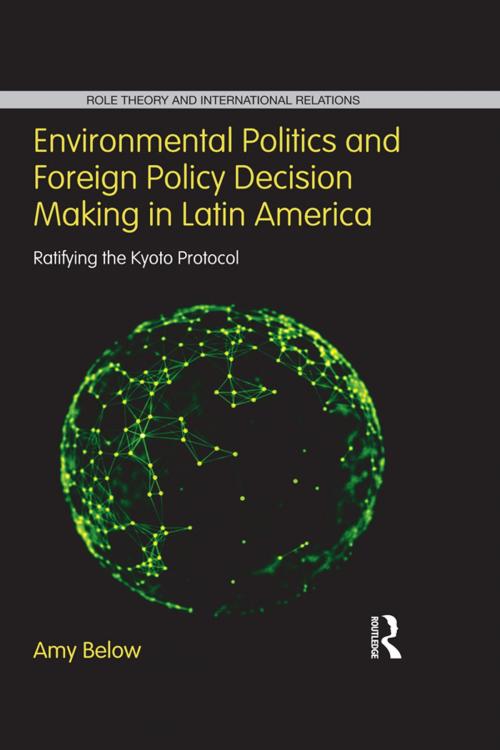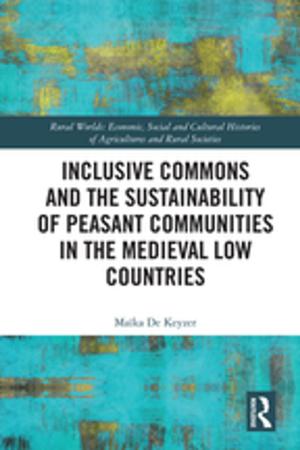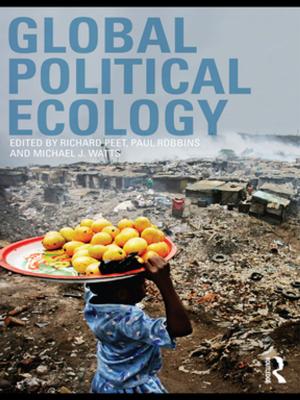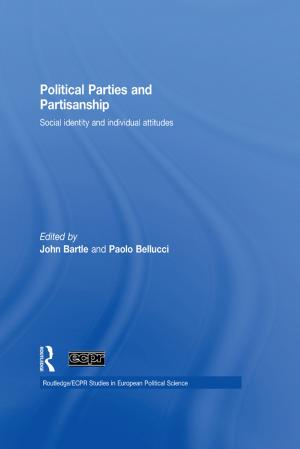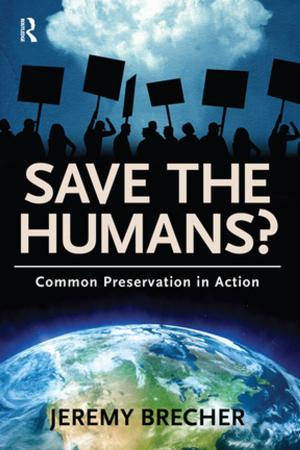Environmental Politics and Foreign Policy Decision Making in Latin America
Ratifying the Kyoto Protocol
Nonfiction, Social & Cultural Studies, Political Science, Government, Public Policy, International, International Relations| Author: | Amy Below | ISBN: | 9781134475049 |
| Publisher: | Taylor and Francis | Publication: | December 5, 2014 |
| Imprint: | Routledge | Language: | English |
| Author: | Amy Below |
| ISBN: | 9781134475049 |
| Publisher: | Taylor and Francis |
| Publication: | December 5, 2014 |
| Imprint: | Routledge |
| Language: | English |
Although the Kyoto Protocol, an international agreement to address global climate change, has been regarded by many as an unsuccessful treaty both politically and environmentally, it stands as one of the world’s few truly global agreements. Why did such a diverse group of countries decide to sign and/or ratify the treaty? Why did they choose to do so at different times and in different ways? What explains their foreign policy behavior? Amy Below’s book builds off the increasing significance of climate change and uses the Kyoto Protocol as a case study to analyze foreign policy decision making in Latin America.
Below’s study takes a regional perspective in order to examine why countries in Latin America made disparate foreign policy choices when they were faced with the same decision. The book looks at the decisions in Argentina, Mexico, and Venezuela via a process-tracing method. Below uses information obtained from primary and secondary documents and elite interviews to help reconstruct the processes, and augments her reconstruction with a content analysis of Conference of the Parties speeches by presidents and country delegates. The book complies with convention in the field by arguing that systemic, national and individual-level factors simultaneously impact foreign policy decisions, but makes the additional claim that role theory most accurately accounts for relationships between variables.
Environmental Politics and Foreign Policy Decision Making in Latin America considers a variety of factors on individual, national, and international levels of analysis, and show that the foreign policy decisions are best viewed through the prism of role theory. The book also draws conclusions about the value of role theory in general and about environmental foreign policy decisions in developing countries, which will be of value to both policy-makers and academics.
Although the Kyoto Protocol, an international agreement to address global climate change, has been regarded by many as an unsuccessful treaty both politically and environmentally, it stands as one of the world’s few truly global agreements. Why did such a diverse group of countries decide to sign and/or ratify the treaty? Why did they choose to do so at different times and in different ways? What explains their foreign policy behavior? Amy Below’s book builds off the increasing significance of climate change and uses the Kyoto Protocol as a case study to analyze foreign policy decision making in Latin America.
Below’s study takes a regional perspective in order to examine why countries in Latin America made disparate foreign policy choices when they were faced with the same decision. The book looks at the decisions in Argentina, Mexico, and Venezuela via a process-tracing method. Below uses information obtained from primary and secondary documents and elite interviews to help reconstruct the processes, and augments her reconstruction with a content analysis of Conference of the Parties speeches by presidents and country delegates. The book complies with convention in the field by arguing that systemic, national and individual-level factors simultaneously impact foreign policy decisions, but makes the additional claim that role theory most accurately accounts for relationships between variables.
Environmental Politics and Foreign Policy Decision Making in Latin America considers a variety of factors on individual, national, and international levels of analysis, and show that the foreign policy decisions are best viewed through the prism of role theory. The book also draws conclusions about the value of role theory in general and about environmental foreign policy decisions in developing countries, which will be of value to both policy-makers and academics.
